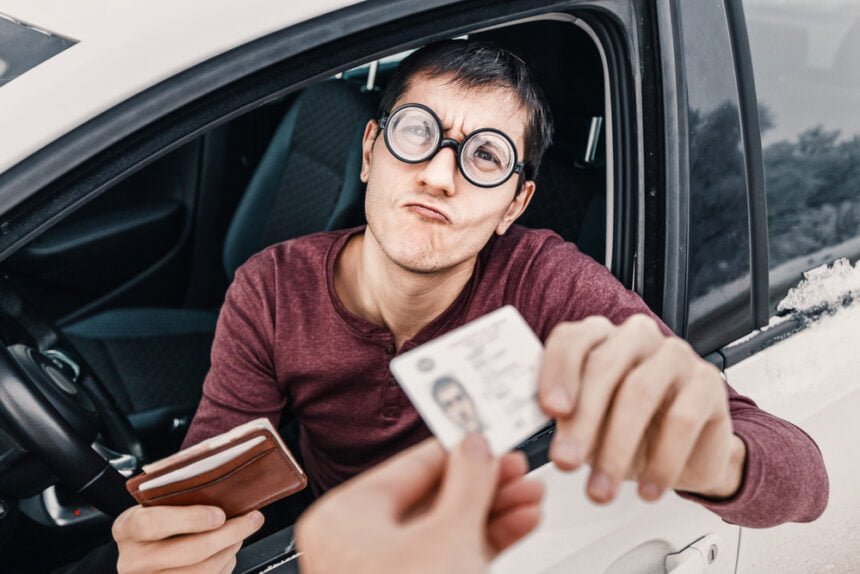Neurodivergent disorders are a lot more common than most of us think. According to the National Cancer Institute, up to 20% of the world population is neurodivergent.
Neurodivergences can manifest in many different ways and many people have difficulty understanding it. Richard Dreyfus’s character in the movie Silent Fall talks about how nobody knows what autism is. He points out that 3,000 years ago people worshipped people with autism as gods, 300 years ago they were burned at the stake as witches and today they are medicated.
There are many things that you need to do to deal with autism and other neurodivergent disorders, such as eating the right food. However, you will need to do other things as well.
Sadly, society’s understanding of autism and other neurodivergent disorders can lead to some serious challenges. One of those comes into play when people are at traffic stops. Police officers can misunderstand the reasons people are engaged in certain behavior and believe that it is an indication that they are being deceptive in some way.
There are a number of things that you have to keep in mind when you are dealing with any neurodivergence when you are at a traffic stop. These tips are especially important for neurodivergent teens to learn, since they have less life experience.
Understanding Your Rights
Navigating the labyrinth of laws during a traffic stop can be a daunting task. However, knowing your rights is crucial to ensure a fair encounter. In Indiana, as in the rest of the United States, you have rights that protect you during interactions with law enforcement. These Miranda rights are designed to uphold your dignity and ensure justice. Let’s delve into the specifics.
First and foremost, always remember that you have the right to remain silent. Yup, even if the officers are asking questions you have the right to remain silent. You are not obligated to answer any questions beyond providing your identification and registration. Politely but firmly assert your right to remain silent if you feel uncomfortable or unsure about a line of questioning. This can prevent self-incrimination and help preserve your legal standing.
The Traffic Stop Process
When you’re pulled over in Indiana, the process generally follows a specific pattern. After pulling over safely, it’s crucial to keep your hands visible on the steering wheel. This reassures the officer and minimizes any potential misunderstandings or misinterpretations of your movements. Stay calm and collected, even if you’re feeling anxious.
The officer will typically request your driver’s license, registration, and proof of insurance. Indiana law requires you to provide these documents upon request. However, remember that you’re not obligated to consent to a search of your vehicle unless the officer has a warrant or probable cause. Politely ask if you’re free to leave if the interaction seems to be extending beyond the scope of a routine traffic stop.
Dealing with Suspicion or Search Requests
If an officer expresses suspicion or asks to search your vehicle, it’s important to know your rights. In Indiana, like in most states, an officer needs either a warrant or probable cause to perform a search without your consent. Probable cause refers to the presence of specific facts or circumstances that would lead a reasonable person to believe a crime is being committed. If an officer lacks either of these, you have the right to refuse a search.
Politely but firmly express that you do not consent to a search, and be sure to clearly communicate your objection. This is not an admission of guilt, but rather an exercise of your Fourth Amendment rights. If a search is conducted without your consent and without a warrant or probable cause, it may be unlawful, and any evidence obtained could potentially be inadmissible in court.
Handling Sobriety Checkpoints
Sobriety checkpoints, or DUI checkpoints, are legal in Indiana. These are roadblocks set up by law enforcement to check drivers for signs of impairment. If you find yourself at a sobriety checkpoint, it’s important to remain calm and comply with the officer’s instructions. You are required to provide your identification, registration, and proof of insurance.
However, you’re not obligated to answer any questions related to alcohol or drug consumption. Politely inform the officer that you’d prefer not to answer any questions beyond providing the necessary documentation. Remember, you have the right to refuse field sobriety tests, though doing so may result in certain consequences, such as license suspension. Consulting with the best criminal lawyer in Indianapolis can provide guidance in such situations.
Seeking Legal Advice and Representation
In the event that you face legal consequences following a traffic stop, it’s crucial to seek professional advice and representation. A criminal lawyer can provide expert guidance and ensure that your rights are protected throughout the legal process. They can assess the details of your case, advise you on the best course of action, and represent your interests in court.
Remember, you have the right to legal counsel, and exercising this right can significantly impact the outcome of your case. Don’t hesitate to consult with an experienced lawyer if you find yourself in a situation where your rights have been violated or if you’re facing legal charges as a result of a traffic stop.
By understanding your rights during a traffic stop in Indiana, you empower yourself with the knowledge needed to protect your legal standing. Remember, consulting with an attorney can provide invaluable support and guidance in navigating any legal challenges that may arise from a traffic stop. Stay informed, stay safe, and know your rights on the road.

